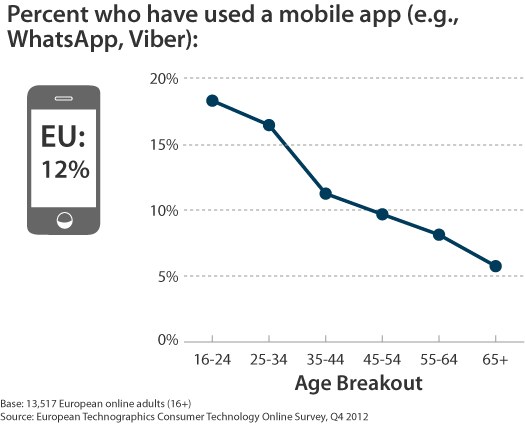The Data Digest: Uptake Of Mobile Messaging In Europe
This week, there was a lot of blogging and commenting around Facebook possibly acquiring mobile messaging company WhatsApp. And although WhatsApp quickly denied that Facebook acquisition talks were happening, I still really enjoyed all the analysis shared by the different technology blogs on why this would be an interesting deal. Many of these mentioned the differences between adoption of Facebook Messenger and WhatsApp in Europe versus in the US.
In fact, the news got me wondering to what extent consumers use mobile messaging at the moment. Forrester’s European Technographics® Consumer Technology Online Survey, Q4 2012 shows that just over one in 10 online European adults (16+) use mobile messaging (e.g., WhatsApp, Skype, or Viber), and this rises to 21% for European smartphone owners. Further analysis shows that usage is very much driven by age:

My colleague Thomas Husson recently published a report called “How To Start Bridging The Mobile Monetization Gap”. In his blog about this topic he shares how mobile has the potential to be more disruptive than the Web, and which challenges companies with a large mobile audience but an unproven business model face. For example, mobile represents 60% of Facebook's total audience — more than 600 million monthly users worldwide — but less than 15% of its revenues. Profiting from mobile services is difficult, but there's no doubt that mobile will play a decisive role in the future success of Facebook, and many other companies.